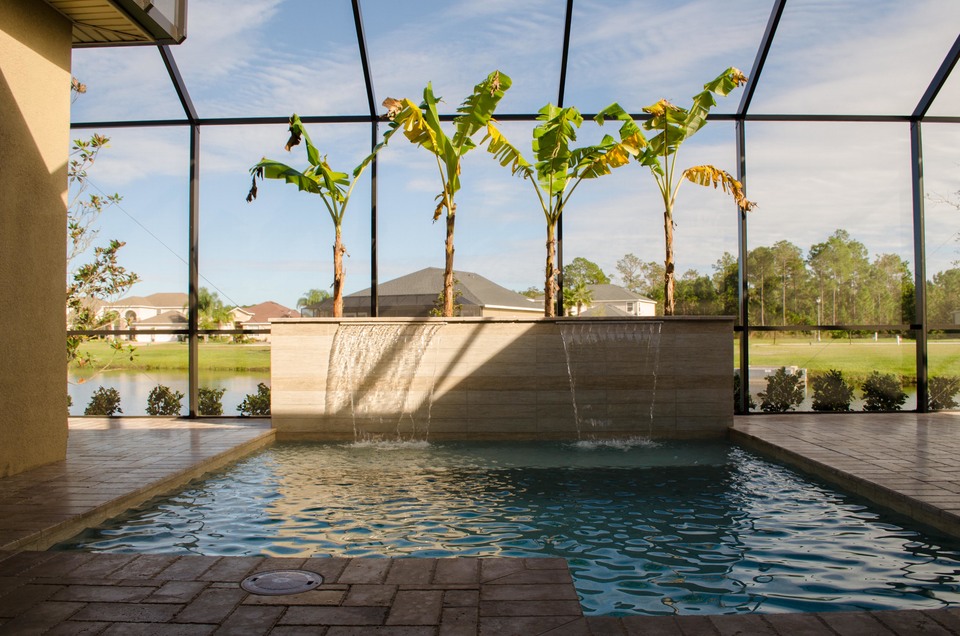St. Augustine Pools: 4 Swimming Pool Myths Debunked
Whether you’re already the proud owner of a Central Florida pool, or are considering building one, you’ve most likely heard your share of myths that revolve around swimming pools. Today, we’re debunking five of them—after reading, you should feel more comfortable and informed when it comes to your favorite summer pastime!
The more chlorine I smell, the cleaner the pool is.
Many people associate a strong chlorine smell with a clean pool—but they shouldn’t! While chlorine is used to keep your pool clean and disinfected, you shouldn’t be able to smell it in strongly in the air around your pool and in your backyard. The strong smell actually comes from the presence of chloramines, what you get when chlorine reacts with contaminants in the water such as body oils, makeup, and others. The chloramines can cause itchy skin and red eyes. To combat their presence in your pool, a common fix is to actually add more chlorine!
Pool water is clean and OK to swallow. Like we said, chlorine is used to keep your pool clean… but you still shouldn’t be drinking or swallowing pool water! Because pool water is treated with chlorine and other chemicals, it’s still not the same as drinking pure drinking water. You also can’t be sure there aren’t hidden bacteria or small particles in the water—and, most importantly, drinking pool water can lead to accidental choking when it goes down the wrong pipe. For these reasons, it’s best to avoid this practice altogether.
Chlorine causes green hair. You, your family or friends may have had your blonde hair turned green while swimming, but don’t blame the chlorine! The green hair is actually caused by the presence of copper in some pools, especially pools that use well water or pools that use copper-based algaecide. If you think this may be a problem in your pool, you can test the water for copper and other metals. If the metal is detected, you can try switching your algaecide to a non-copper-based one and, if all else fails, protect your hair by swimming with a swim cap and washing it out right after swimming.
Swimming after eating is seriously dangerous to your health. Our parents told us, and we tell our kids—at this point, not swimming after eating is basically common knowledge! But the act of taking a dip after a meal isn’t as bad as it is often made out to be. After you eat, your digestive muscles are hard at work, which is why swimming or taking part in any vigorous activity is generally discouraged, since you’d be using more muscles than your body is able to control, and are thus at risk for a cramp. However, swimming is famous for its low impact nature! After a small meal, relaxing in the pool should be perfectly fine—you’re not over-exerting yourself in this way. On the other hand, if you gobble up a big meal, you might want to avoid swimming laps or practicing your diving, at least for a while.

Bookmark & Share
Most Popular Articles
- The 5 Biggest Benefits of an Early Morning Swim
- Four Things to Consider Before Purchasing a Pool
- 4 Questions to Ask Before Choosing Your New Pool
- Fun Pool Safety Tips For Kids
- 5 Pool Accessory Ideas for Summertime Fun
- Fun and Functional Additions for Your Pool
- Swimming Pool Facts to Impress Your Friends
- Warm Weather Pool Tips


